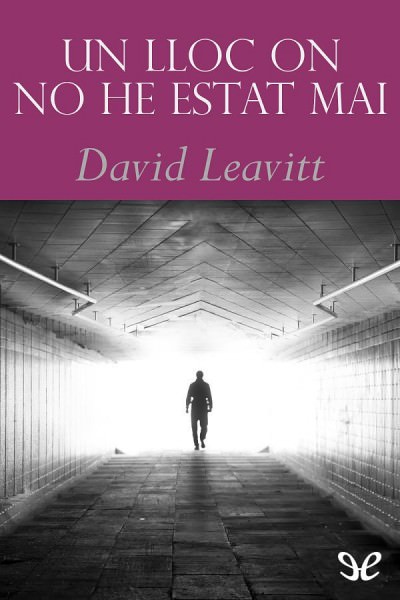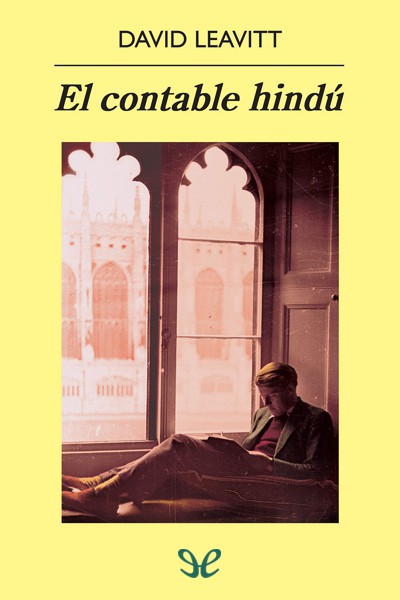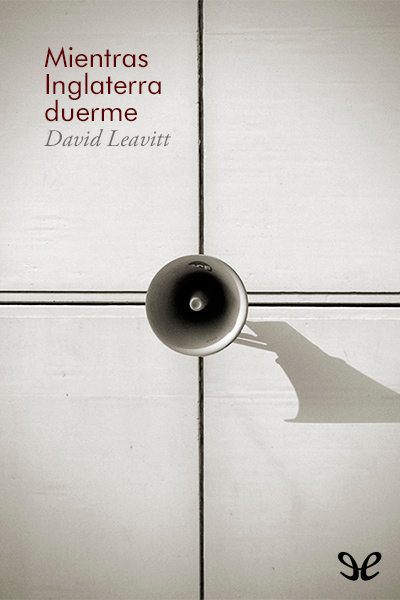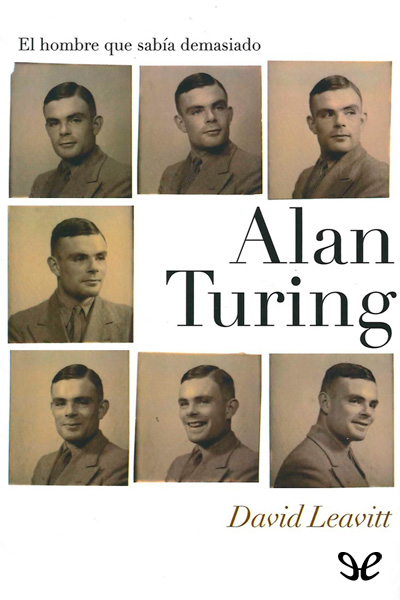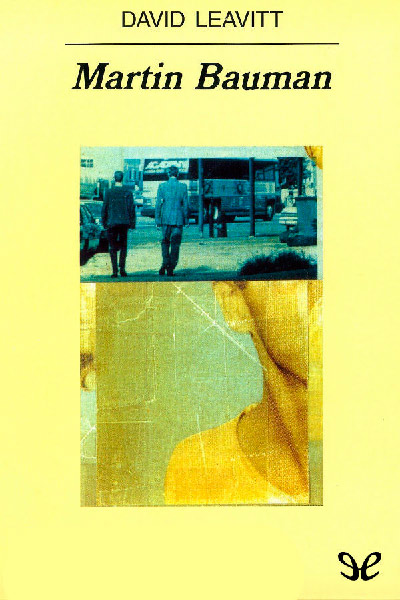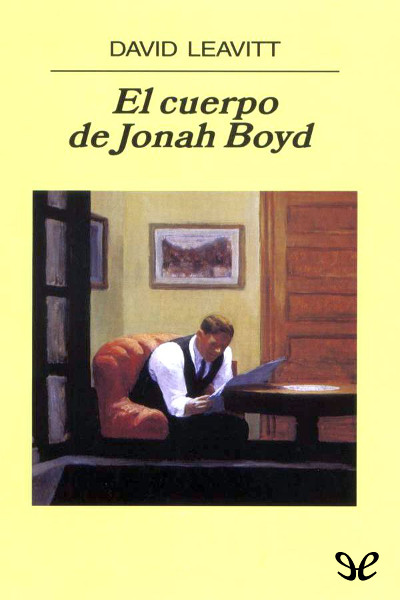oleebook.com
Mentre l'Inghilterra dorme de David Leavitt
de David Leavitt - G├®nero: Italian
Sinopsis
Ambientato nell'Inghilterra degli anni '30, il romanzo rivive gli ideali e i tradimenti di una generazione di intellettuali che seppe affrontare i pregiudizi sulla politica, l'impegno, l'amore e il sesso: la nostalgica rievocazione di un amore omosessuale, destinato a concludersi tragicamente durante la guerra civile spagnola.
Libros Recomendados - Relacionados
Rese├▒as Varias sobre este libro
Initial reaction:
Argh, my heart.
Actual review:
Sometimes, when I finish a book, I loved it so much that I have to write a review right away, However, sometimes, a book affects me so, that I need a few days to decompress. This is the latter.
While England Sleeps takes place in 1930s Europe. It's told from the point of view of Brian Botsford, an upper class amateur writer, and tells of the relationship he has with Edward Phelan, a working class boy and Communist.
That's all you're getting out of me as far as a summary, because this is a book one needs to experience with only the vaguest of preconceived notions. Because nothing can prepare you for getting your heart ripped out and stomped on. Ok, I'm being over dramatic, but when I finished and closed the book, that's what I felt happened to me.
Oh, the author is a cruel person for doing this to me, I thought. I couldn't stop sobbing at one point. I get it, though. While England Sleeps is incredibly realistic and those are stories that get me emotional › the ones that could quite possibly have happened.
In the days following my finishing this book, I found the story popping back into my head at random times. I've had to tell myself not to get all choked up again. Cripes, I have to keep telling myself that this damn book was fiction.
I checked this book out from the library, but now I have to buy my own copy, so I can randomly open it and torture myself at odd times.
Damn this book.favorites fiction historical-fiction ...more33 s Aleksandr VoinovAuthor┬Ā74 books2,446 Read
Enjoyed this.
Interesting plagiarism debate:
The plagiarised: http://www.nytimes.com/books/98/04/26...
The plagiariser: http://www.nytimes.com/1994/04/03/mag...book-club-reads genre-literary own13 s Andy Murphy-Williams15 4
After reading the of this book, and how gut-wrenching the ending was I thought I'd give it a go. I'd just re-read Forster's Maurice and was wanting a bit of a gay period story. Oh dear.
I know that it's possible to have a hateful protagonist, and for that to add to a book; but even horrible people need to grow, or at least go on some journey and be different at the end (even if they are still horrible). Brian Botsford does go on a journey, a literal one, and comes back the same. I was disappointed by the story. Upper-middle class writer briefly lives with a working class boy, treats him terribly, awfully, then realises he loves him. Kind of. Well, actually, no, "it would be twenty years until I even contemplated marriage between two men".
Part of why I didn't it is the picture it paints of gay men. All gay men cheat, it seems to say; all gay men go cottaging, desperately. I'm gay and I do neither of those things. Alec Scudder didn't do those things, neither did Edward Phelan. What is Leavitt trying to say then? Upper class gays do? The story was a non-story, the main character didn't change all the way through.
I agree with other reviewers who say it's perfectly acceptable to have a villain as the protagonist, and to be able to enjoy that book or story - but I can't condone the way Brian treated Edward, his cowardice or lying, and worst of all: he learned nothing from his behaviour and its consequences, not even regret.
Read the book if you want to, there's lots of beautiful description in there, and there's no denying Leavitt is a good writer. Having read this, I doubt his storytelling abilities though. Every chapter ends with a wistful, forced image; much a hollywood blockbuster: "I stopped being young", "Then the letter came", "As if it mattered. As if he weren't watching my every move".
The characters talk of Oscar Wilde, E.M. Forster, and it seems that Leavitt wanted this book to be a sort of Maurice or Wildean tale; it falls far short. It lacks the wit, tenderness and story that Forster or Wilde's works do.
I wish it had been great, I wish Brian Botsford hadn't been such a lazy, cowardly cheat; but it wasn't, and he was.9 s1 comment JOSEPH OLIVER109 22
I don't have the language for book and have no wish to repeat what other reviewers have said in much better English. I found the book very engrossing and showed a flawed main character who lives with the results of his behaviour for the rest of his life. Although it sounds dramatic it could in fact happen to anyone - not knowing whether something you did or left undone would have affected someone else's life profoundly. I read the book straight through and regretted finishing it so quickly. I'll re read it at my leisure. Well worth any expense incurred.gay novel6 s Steve Woods619 68
I read this book in a single sitting, I couldn't put it down. The trajectory of the relationship and the pathos of Brian's denial of what all dream of, passionate love and simple commitment (whether it is ever possible to achieve either in the form presented in this story or not is another question), and the subsequent loss of all through the meaningless and unecessary death of Edward, had me pinned in ways I would never have expected. Much of the intensity the story carried for me, may have had much to do with events in my own life, I left the barren hearth of home for the futile endeavour of a war in Cambodia in the 70's, and a tragedy unfolded there for me in exactly the same fluid, incremental way that Edward's death evolved in this story. It was on me before I even realised that it was circling.
It is not difficult for me to imagine that had I been alive in the 1930's in Europe I would almost certainly have ended up and probably ended in Spain. It carried so many similarities to the debacle I did throw myself into;confusion, dedication, heroism, idealism, betrayal,intrigue, romance, futility and much death and destruction for a simple beautiful people who deserved better.
For me the most impact in this story came through the simple straightforward accounting of how one person fuelled by fear and the expectations of culture, in driven pursuit of what they think they want can cruelly, almost mindlessly close their heart to another.
I was saddened deeply by the threads from my own past drawn by this story so vibrantly into my present.This entire review has been hidden because of spoilers.Show full reviewa-good-read favorites gay-fiction4 s Adam161 32
I may be adding this to my favorite shelf in the next couple days. Yes, this is a title parody of Winston Churchill's 1938 While England Slept. Leavitt's While England Sleeps takes place in 1936-1937 and focuses on a young man's coming to age story in London.
Brian Botsford, the main character, along with his Oxford classmates, Nigel, John, and Rupert are in a different caste and rebel for the cause against the rising Fascist power in Spain. Edward Phelan, with Communist beliefs, falls in love with Brian, and their sexual relationship is not only erotic on page but believable in heartbreak.
Highly recommend, and after reading two David Leavitt books now, I'm a fan5 s ErastesAuthor┬Ā30 books296
From the blurb:
At a meeting of republican sympathisers in London, Brian Botsford, a young middle-class writer and Cambridge graduate, meets Edward Phelan, an idealistic, self-educated London Underground worker. They share a mutual attraction. Across the divisions of class they begin an affair in secrecy.
But Edward posesses ┬ōan unproblematic capacity to accept┬ö Brian and the love that dare not speak its name, whereas Brian is more cautious and under family pressure agrees to be set up with a suitable young woman. Pushed to the point of crisis Edward threatens to volunteer to fight Franco in Spain.
There are (to my perception, at least) a few inaccuracies in the blurb, but I won’t quibble over them. This is an excellent book which I devoured in two sittings.
It has a readability that draws the eye, and the narrator┬Æs voice is completely convincing. It┬Æs written in first person, there is a faux prologue ┬ōwritten┬ö in 1978 where Brian explains that he┬Æs now living in America and considers himself to be an American and an epilogue which looks back at 1938 from that fifty year gap. Both of these devices go far to convince that the book was written by Brian and not by David Leavitt.
┬ōAs Meat Loves Salt┬ö (although not to the same extent) Brian is not a able or attractive character. A product of his class, he coasts through life, un Edward who takes what he wants with more enthusiasm, facing what he is face on. Brian still thinks that being homosexual is just something one did at school and that he would get over it, although it┬Æs obvious he┬Æs deluding himself. He┬Æs a playwright, and he plays at it, having no drive to support himself; he sponges off his Aunt Constance (or ┬ōInconstance┬ö as he cruelly calls her, as she doesn┬Æt pay him regularly enough for him to depend on her support. He mumps off his friends and generally won┬Æt commit to one thing or another, which leads to the crisis event in the book ┬¢ one which he will regret, and will haunt him for the rest of his life.
I found it to be tremendously absorbing, the best of historicals, it immersed me in the era without info dumping. As I’ve said before, if a book reads it was written in the time, rather than about the time, it earns big kudos from me. The class divide might be hard for non-Brits to grasp › but pre-war it was still more relevant than people would suppose. I felt ashamed of Brian’s inability to admit his affair to his own friends, but then found it perfectly acceptable to talk to Edward’s sister about it. I wanted to smack him with the clue-by-four several times in the book › but that’s ok › that meant that the author was doing his job.
It also brings the situation in Europe at that time into sharp relief, there’s a lovely sub-plot with a friend of Brian’s who is attempting to get a friend out of Europe which breaks your heart, and you, as the reader, knowing what is going to happen in a few short years, hold your breath and weep at the hopeless cause and loss of life that is the Spanish Civil War.
If you prefer to your protagonists, then this book might not be for you, but if you want a meaty and rich story that takes you so viscerally into the period that you can smell the steam engines and feel the bubble of the champagne of the Fast Set, then you’ll enjoy this as much as I did. A definite keeper.gay-historical3 s Nancy398 85
Dreadful. The plagiarism alone would justify one star, but even on its own merits the book fails. It's chock-full of solecisms about both England and Spain in the 30s, making it obvious even in ignorance of the facts that Leavitt must have borrowed heavily - when he wasn't engaged in outright fantasy. A truly ridiculous book.4 s Dina594 364
Francamente bueno y realmente curioso. El protagonista es un escritor en ciernes, obsesionado con el sexo. Se empareja con un jovencito sin recursos y se ve como lo traiciona. A su vez todo est├Ī envuelto en tiempo de preguerra lo que le da una ambientaci├│n genial.4 s Paul1,283 60
A book so bad I had to solicit aesthetic slurs to describe it. One friend suggested "waistcoat ripper" and we'll stick with that. I didn't even need to see the controversy over plagiarism mentioned in a Goodreads review to know this book was a ripoff. The author's prose changes with the setting -- when his characters are having sex in England, their speech and mannerisms sound the half-informed imaginings of a pretentious 17-year-old who just binge-watched the TV serial of "Brideshead Revisited;" when his characters are having sex in Spain, the book reads gay Hemingway. An incidental character keeps dropping in and out of the narrative for the sole purpose of allowing Leavitt to steal from Christopher Isherwood as well. The blurb on Kindle made this book look an interesting gay spy novel but it's just bad gay romance. Oh, and I've got to hate on one more thing -- the book takes place in the mid-1930's, but Leavitt, the lazy idiot, didn't do enough research to learn who was Prime Minister. It was Stanley Baldwin or Neville Chamberlaine, you moron, not Anthony Eden. I know you didn't have Google in 1993 when you excreted this garbage but there were encyclopedias.
Damn, I hated this book.3 s1 comment Karen Wellsbury822 38
This was an intriguing read for me, I love this period, Laurie Lees As I Walked Out One Midsummer Morningis one of my favourite books, and there are similarities (which is a good thing)
I also the casual way that sex was sometimes dealt with in the 1930's, at times.
This started off so well, it was funny, there is scene where an elderly relative writes a letter praising the way that he's dealing with Germany, where I spat water out. Brian and Edwards romance starts off gloriously, and I was seduced by romance reading into imagining this would be at the very least HFN. Edward's family are touching and funny and Edward himself is a beautifully realised character.
Then Brian, a total product of his upper class breeding; where its ok to fuck boys, but one day you will fall in love with a woman and get married, reverts back to type. The way the relationship flounders and Edward feels the distance between them was achingly sad and real.
The way the book ended was not totally satisfactory for me, bu the writing was grand3 s Shawn Thrasher1,883 44
I fell right into the deep end of David Leavitt's While England Sleeps and only came up for air when I absolutely had to. The first half of the book is incredibly romantic and occasionally witty (sometimes hilarious) and details the sexual encounters of two twenty-something young Englishmen from different sides of the tracks (or in this case, the Tube), who are exploring each other's bodies (and Communism) for the very first time. The backdrop is the dark days of the 1930s, when the everything seemed impossibly short and brutish and the world was about to end, making their encounter seem all the more urgent. The book takes a tragic right turn about half way through, and I don't want to give way too much, but it made the book even more fun to read, and tragically romantic (romantically tragic?). I cried a baby at the end. Gay historical fiction is a rare bird, and well-written gay historical fiction is almost unheard of. 3 s Franco Fica58 3
Me encant├│ el libro. Me dej├│ un vac├Ło emocional gigante.20212 s Elma Chowdhury189 7
Tragic book, beautifully written - had me tearing up
Love and loyalty and betrayal, the hypocrisy of upper class society
I want to give Edward Phelan a big hug 2 s Tom157 3
A reasonably gripping and well-written novel, in some ways, but I don't the way the Spanish Civil War is used as a backdrop to the main love story. We are supposed to believe the protagonist is a writer, part of a circle of serious intellectuals (clearly based on Spender/Auden/Isherwood etc.). His lover is a Communist who goes to fight in Spain - a huge decision for a young man to take, but one which is sort of trivialised in the way it is presented as simply a response to a relationship breakdown.
Leavitt excels in portraying the personal relationship, the shabby way Brian treats Edward, and the painful guilt and regret that he feels later. But the politics of the 1930s are not really treated in a serious way, and I sometimes felt one could write a very similar story set in the 1940s, 50s, or 60s, and leave Spain out of it. Spain is there to supply a dramatic episode and the personal tragedy of Edward's death. But the larger political tragedy - the strangulation of the Spanish Revolution and the victory of fascism - is left out.
2 s Jaljes107 5
So I enjoyed some parts of this book a lot, but I hope my review explains why I gave this book a 3. It's a first person narrative, so the events are told by the voice of Brian, who is an upper class writer, although he depends on his aunt's charity. His acquaintances belong to the same social circle, until Edward comes into his life. At first it seems it doesn't matter to Brian that Edward has a working class upbringing and works as a ticket collector for the London Underground, but then their relationship starts breaking because Brian starts getting bored and has multiple affairs, one of which is with a woman who was introduced by her aunt hoping to marry his nephew. Meanwhile, Brian always keeps aside a copy of the Communist Manifesto and is getting more involved with the Civil War in Spain. Brian struggles to see himself in a homosexual relationship and eventually proposes to a woman. The same day, Edward joins the Communist Party and signs to fight against Franco.
I'd say this is a Bildungsroman in which Edward and Brian eventually come to terms with their identity in a society which would never accept them. Brian feels pressured by his family and is confronted with his own prejudices of homosexual relationships. After his proposal was rejected he comes back home to find that Edward has enlisted and probably already left to Spain. I find it a little bit hard to understand some changes in the plot, since the only really developed character is Brian. And even after looking for Edward and everything that happens in Spain, the only change that seems to have taken place is that he accepts he's probably not spending his life with a woman and finally starts writing. I think I would've much preferred to read Edward's perspective. Some of the other characters seem to appear at very convenient times in the plot in the right places. Overall I ejoyed reading the novel, but it did leave some holes in the narrative.narrativa-lgbt2 s Leigh254 18
I'm torn between two and three stars for this book; it was a very 2.5-stars sort of experience.
I think my main problem is that between (among?) Hemingway, Isherwood, Remarque, and a number of variably fictionalized takes on the Cambridge spy ring, I've pretty much already read this book... and I've read it done better.
Also, Leavitt comes off as intensely obnoxious in the interview (about the Stephen Spender controversy/lawsuit) included at the beginning of my edition. It actually kind of cast a shadow over the book for me. I try not to judge books based on their authors' personalities, but Leavitt sure made it harder here.1975-1999 genre-novels ownership-library-books ...more2 s unipark1 review7
A mawkish, reductive pastiche ripped straight from the lives/books of Stephen Spender and Christopher Isherwood, with (mildly) explicit sex scenes grafted awkwardly onto the narrative. An unamused Spender successfully sued, publication was halted, and Leavitt uses the self-serving introduction of this eventual reprint to air his petulant grievances at length. This is the first time I've been moved to write a review on Goodreads, but my distaste for this book just had to be shouted. 2 s Dorzaby37 12
depressed!2 s Tex Reader466 25
3.5 out of 5 - Moving Story of Gay Love in 30's England/Spain
I was moved by this story of what it was to have, lose and regain a lover, at a time when you had to battle to even love another man. All with the backdrop in the 30's of growing Communism, Fascism, and ultimately the Spanish Civil War.
David Leavitt wrote with a clear voice, very readable and descriptive, particularly in terms of understanding the MC in a first-person flashback 40 years prior. It is a tragic tale in a way, yet uplifting. There are those in the m/m romance world that want the HEA. And I understand those in the gay community that, rightly so, say that too many stories and films have sad endings for gays. But that was then; let's bring that forward a few decades where it is more balanced; and then back even further to recognize, in reality, that's what happened. More often than not, desires were repressed, relationships destroyed, lives lost physically and mentally. As a gay man myself, it felt real to me. This represents that truth.
It's ironic to say "truth," because I purposely read the first version, with the supposed plagiarism from Spender's memoir. It was later edited with only 18 instances taken out. While I have not read the memoir, I have read and did see a little "inspiration" from Christopher Isherwood's Christopher and His Kind as well as E.M. Forster's Maurice. With that, I'm more inclined, having read this through, to think they were not copied exactly but similar and inspiring the larger story. I'm torn on whether to think of them as incidents that were all too common at the time from what I've (and I'm sure the author) read. But then there's the whole ideas of trying to save your lovers through immigration and even going to Spain to save your lover, that hits a bit too close to home. Maybe a little too much borrowing.
And then, in truth, it was not until near the end that I realized it was in the last third that it started really getting under my skin, in a good way. It did take a while, but I guess the build up was needed, laying the foundation for the MC coming to terms with his mistakes and trying to recover. Even then I'm not a big fan of the MC. Still, who hasn't in their early twenties had something they didn't fully understand and regret? And not just the MC's self-realization, mea culpa and actions, but the way the author gets to the heart of things, even voicing the feelings of what it's to be gay, particularly at that time, and not just about the love of your life, but about one's sexual desires and society's disdain.
To its credit, it did take me back in time, and brought me to tears in the end.
[Gay Men’s Book Group-Chicago monthly selection]a-own-pb-or-aud glbtq hf-n-recent-past ...more1 Cate228 8
Could not put this down. Wonderfully told story set in the lead up to WWII focusing on the love between Brian and Edward and how that goes badly wrong resulting in Edward going to Spain to fight in the civil war. Part romance, part history, part social commentary. Really enjoyed this.london1 Angel Rodriguez5 1 follower
Una de las mejores novelas homoer├│ticas que he le├Łdo. Con una pareja, escenario y drama bastante peculiar, Mientras Inglaterra duerme, de David Leavitt, sin duda es una propuesta interesante no s├│lo de contenido homosexual, sino tambi├®n de contenido hist├│rico.1 Ricky Arnold64
Loved this!1 Matt Rohweder46 15
Whenever LGBT literature arises in conversation it is not at all uncommon for the name David Leavitt to feature heavily in that conversation. His novel, The Lost Language of Cranes, has become a mainstay of gay fiction - appearing on best of lists, queer literature course syllabi, featured in LGBT book clubs and so on. The name Leavitt often goes hand in hand with Gore Vidal, Edmund White, Alan Hollinghurst and others...so, when I saw a copy of this book at my local library, I figured it was a given that it was going to be good. Add to that it was also a piece of historical fiction about the start of WWII, and I knew I would love it.
Sadly, as much as I wanted to love it, it never really broke past the three stars category for me.
The characters barely seemed three dimensional to me, especially the narrator - Brian - who never actually reflected on the events of his life in a way that moved beyond either self-pitying or condemning the world for harming him emotionally. Brian seemed incapable of eliciting a response from me that moved beyond wanting to slap him. Beyond that, every other character is the novel is a mere caricature of a person. The women in the novel are either sexual one dimensional figures who have very little purpose in the novel and many of the other gay men are just uninteresting.
The sole exception to this is Edward, Brian's ill-fated lover, whose story I wanted to hear more of. However, in the end even Edward doesn't escape the lack of honest character development - he remains a impressionable, slightly dim-witted lost soul who ends up out of his depth in Brian's world. Edward's story is dictated by Brian's actions - and Leavitt makes clear that Brian strongly feels as though he was the driving force for many of Edward's decisions - yet, even through Brian's poor narration, I still found Edward fascinating.
If the novel had been from his point of view, I would probably have actually enjoyed it.
I do hope further Leavitt novels - especially his historical fiction - are stronger offerings than this one. historical-fiction mystery1 Ozmar Pedroza81 9
"As├Ł que huyes de los causantes de dolor, vas a un sitio nuevo, intentas convencerte de que el viejo sitio no existe, que la distancia borra la historia."
Una maravillosa historia sobre un amor roto, representado en una cadena de autoenga├▒os y de decisiones que terminan por da├▒ar a las personas m├Īs queridas. A pesar de que, desde el inicio, hay un presentimiento de la tragedia amorosa que se avecina, David Leavitt ofrece un relato extraordinario que presenta a sus personajes como humanos, con excentricidades, virtudes y miedos, lo cual permite conocerlos de una mejor manera. Asimismo, Leavitt muestra c├│mo los peligros de la traici├│n en la juventud pueden crear heridas profundas que tardan en desaparecer. Sin duda, ├®sta es una historia digna de la buena literatura contempor├Īnea; en sus l├Łneas se encuentran personajes llenos de pasi├│n, culpa, sentimientos encontrados y sacrificio en tiempos de guerra.
Totalmente recomendada, ya que es un libro de esos que empiezas y no puedes dejar de leerlo hasta saber el final, aunque sea triste o simplemente un cierre com├║n.
"Quien toca el cuerpo por fugazmente que lo haga, tambi├®n toca el alma."diversos-lgbti favorites1 PlusFour33
Relentlessly depressing. An obvious attempt to channel E.M. Forster, the occasional beauty of the writing is marred by the apparent pointlessness and nihilism of the story, and the fact that Leavitt simply has no feeling for the voice of a working class Londoner in the 1930s.
Remarks by Leavitt that I read after the fact, and the way he dealt with what seems to be a rather credible accusation of plagiarism, have also coloured my view of the story. In his huffy response to the accusation, he rails against historical injustices in the U.K. with regard to the treatment of gay people, and claims this is "a novel about the hypocrisy of English attitudes toward homosexuality"; all I can say is, first, no, it isn't, and second, that's pretty rich coming from an American. Rather than admit that he messed up by borrowing too liberally from someone else without attribution, he lashes out against a culture he obviously deeply admires.
Of course, all this happened in 1994. Nevertheless, I wish I'd known about it before I bought the book; I'd have saved my money and bought Stephen Spender's autobiography "World Within World," which Leavitt is accused of stealing from, instead.1 SloMo40
Yet another procrastinated literary remembrance. Am probably being conservative with this rating as it's definitely worth at least an additional half star. For me, this was the sort of experience which proves how reading books has saved my life on so many various levels on so many various occasions. This novel, from start to finish, was one long splendid sigh; a combination of romantic history and cinematic splendor. Think of it as a mashup of Brief Encounter and Tales of the City with a shot of Great Gatsby on the side. You've got war, class, deception, long train journeys and even further voyages by freighter, soldiers, secrets, booze, fury, and folly. Everything that makes us fall in love with love, and then some. At a time in my own life where my heart appears to be a fallow destination, this book gave a recuperative glimpse into emotional journeys both past and imagined, connecting me with that velocity of devotion which often seems just one grasp out of reach or buried only a further layer below.1 Brian66 4
Europe between world wars was watching the surge of fascism grow in both Germany and Spain where a fascist rebellion, led by Franco, was fighting to over throw the democratic government. The title refers to England’s hands off policy for Spain. Meanwhile thousands of young people from Europe and North America were volunteering to fight Franco’s fascists.
Brian is a upper class young man who believes that he is not really gay but having fun until it is time to settle down and marry. His lover, Edward, a working class young man, quietly accepts his homosexuality. When Edward discovers that Brian has been having an affair with Philippa, and is planning to marry her he flees Brian’s room and volunteers to fight in Spain.
I enjoyed the historical parts of the story as well as the love story. Well worth the read.
See my blog at:
http://bevd.edublogs.org/1 Maria Lago458 117
Pues qu├® quer├®is que os diga, que a m├Ł el Isherwood ya me ca├Ła mal de antes, pero tras saber de la pol├®mica que mont├│ por verse retratado tan poco her├│icamente en esta novela tan estupenda, vamos, lee t├║ sus Berlin Diaries, que a m├Ł ya me dan igual. Claro que ├®l dijo que Leavitt le hab├Ła plagiado y le hab├Ła robado su biograf├Ła. Paparruchas. Eso es la inspiraci├│n: ves algo que te inspira y escribes palante.
Quiz├Īs exagero, no me extra├▒ar├Ła. Esta fue la tercera novela de Leavitt que le├Ł y es mi favorita. Es tr├Īgica, pero rabiosamente rom├Īntica, agridulce, sexy y muy entretenida. Es gay Downton Abbey. Es lo que hubiera escrito Isherwood de no haber sido un aguafiestas. James91 25
Autor del comentario:
=================================

